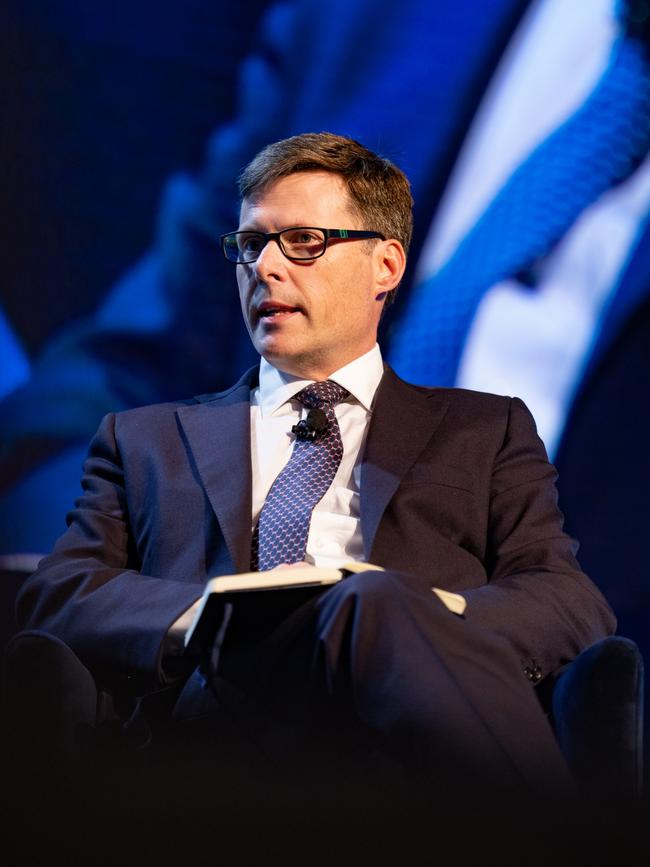
After a week of intense talks between the two ended at a stalemate, Anglo’s message to BHP is: forget it, there’s no rational deal to be struck. BHP too has run out of patience.
By moving on, Henry is likely to use the loss of the Anglo prize as a strategic win, showing his shareholders that even in the heat of the pursuit, he remains disciplined. He will also need to reassure his investor base that Anglo should be seen as ‘nice to have’ but BHP has copper growth options available to it. This is from the giant Escondida mine and through the consolidation of the new South Australian copper province that combines Oz Minerals mines with its own Olympic Dam output.
From the outset BHP and Henry misread the Anglo board’s determined view of itself as a South African champion. Henry too underestimated how Anglo’s complexity — something the market long saw as a weakness — could be used as a formidable defence.
After rejection of a deal that was sweetened three times to $US49bn ($74bn) and rising acrimony on both sides, BHP’s Henry is expected to take his chequebook and walk away.
This doesn’t mean the matter ends here with Anglo’s own drama still to play out.
There is a prospect of BHP returning to Anglo in six months after the UK’s put up or shut up deadline expires, but the likelihood is low.
Bankers involved in big corporate transactions liken acquisitions to the planets aligning and when the moment has gone they could be gone for good. This is more obvious among big global miners where strategy and planning cycles are sometimes counted in decades.
In the UK’s case, where takeover rules are skewed in favour of defence strategies, the same buyer returning after the mandated blackout period for second round offer is very low – running at around 5 per cent.
Still, the Australian mining giant has applied intense pressure on an already weakened Anglo in all the right places.
This could see the combination of time, and the London-headquartered miner’s increasingly impatient investors, push the Anglo planet back into BHP’s orbit.
Anglo’s boss Duncan Wanblad needs flawless execution after committing himself to a radical restructure that involves the sell-off of four key divisions within two years.
This would see it exit platinum, coal, nickel and its prized De Beers diamonds business. Both nickel and diamonds are facing a moment of steep structural challenge.
At the same time, Wanblad needs to invest heavily to improve the operational capability of its copper mines in South America — all with limited balance sheet firepower. If Wanblad misses the mark, his job will be on the line, putting Anglo deeper in a strategic drift.
Accident prone
The key reason Anglo found itself vulnerable in the first instance was due to a large downgrade last December of copper production from its Chilean mines.
This was the latest chapter in Anglo’s accident-prone history, including a fatality at its coal mining operations in Australia several years ago.
This time it had taken its eye off the ball on copper while it was pumping all its spare capital into its costly soil nutrients project in the UK. Wanblad is hoping to redirect investment back into copper now that BHP has shown the value of the business.
Anglo this week formally rejected BHP’s third offer which valued it at £31.11 per share, up from about £25 from its initial approach. Anglo shares dipped back below the £25 mark, which is the market’s way of expressing doubts over Anglo’s ability to turn itself into a highly-focused copper and iron ore miner with a soil nutrients option.
In the end it wasn’t down so much to the value, which offered a control premium, but the structure.

BHP’s Henry wasn’t planning to budge on demands from Anglo to undertake a simultaneous spin out of its two majority-owned but listed South African platinum and iron ore units.
Anglo correctly gambled Henry couldn’t afford to buy out Anglo whole, including the two-listed companies along with everything else.
Going down this path would mean BHP’s own shareholders would be exposed to the two listed companies, and a post-deal spin-out, rather than pre-deal that Henry was proposing. Which would mean BHP investors would find themselves holding shares in two unwanted South African companies. This could be difficult to exit down the track without substantial loss of value.
During a week of talks, BHP attempted to smooth over Anglo’s concerns over what are very real regulatory risks. This included an ever-expanding list including a reverse break fee and commitments for South African employment and social commitments, all with an eye to win over South African’s regulators and in turn Anglo’s board.
This too started representing value leakage and an increasing distraction for BHP’s management, who really only wanted to get their hands on Anglo’s copper prize.
While BHP’s headline takeover price was not the issue of contention, Anglo insisted the offer “did not sufficiently address” the fact shareholders would bear disproportionate execution and value risks.
Regulatory risks loomed large and early in the deal, Anglo had suggested BHP didn’t see a future in South Africa. This came as Anglo itself proposed unwinding its 100-year-old relationship with the Johannesburg-based De Beers diamond miner and platinum businesses.
It was not lost on many that talks between Anglo and BHP over the past week were taking place in a politically charged environment of a presidential election.
Holding the cards
Where to now for BHP? The Australian miner has no appetite to go hostile, nor is it allowed to for at least six months under the UK’s put up or shut up takeover rules.
BHP has previously committed to investors any deal would need due diligence, with a number of costly tax issues remaining. Going hostile would be a big gamble on the mood of Anglo’s big South African shareholders, including the state-backed Public Investment Corp, that would also be weighing up the loss of a national champion.
Henry too, has effectively ruled out a higher offer following the six-month deadline, with any deal needing to deliver value to all BHP investors.
Following BHP’s pressure, Anglo has now pinned its future on copper, and this means its value is likely to rise and fall in line with the red metal.
BHP is bullish on the long-term value of copper as a transition metal, and forecasting a supply deficit this year based on the assumption of unwinding inflation rates will be a boon for global growth.
Then there are the macro pressures. Inflation has remained sticky in parts — particularly in the US, which means cash rates globally could be high for longer.
There’s also a very big risk over further deterioration in China’s property market and the unknown of the US presidential election later this year.
A win by Donald Trump will almost certainly spark a new and damaging trade war between the US and China, and this will be bad for global growth, and in turn copper.
Anglo now has a very big target on its back. This keeps the pressure on it to deliver to shareholders.
The firm rejection does not mean Anglo is takeover-proof. If it stumbles again through its own missteps and the planets again align, BHP may be waiting and ready to strike. Only this time, the Australian miner will be holding all the cards.
johnstone@theaustralian.com.au








Mike Henry is unlikely to dwell too much on what could have been after abandoning his $74bn pursuit of Anglo American, with the BHP chief executive now expected to move onto other opportunities. The short-lived bid is as good as buried.